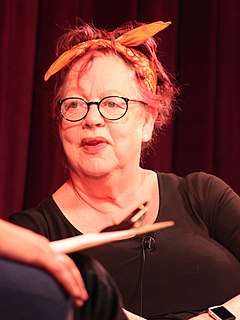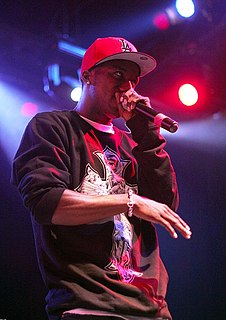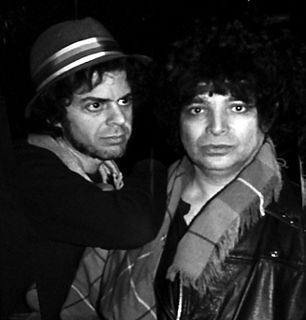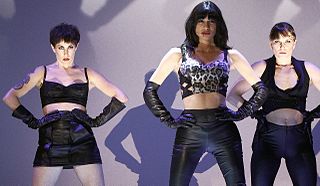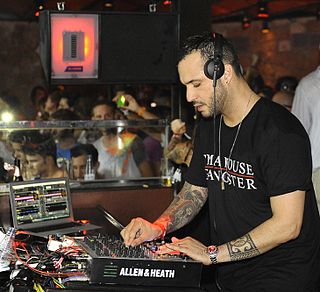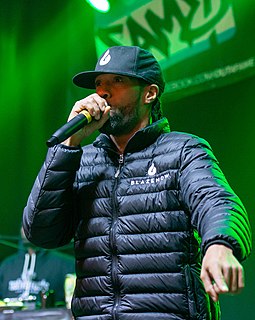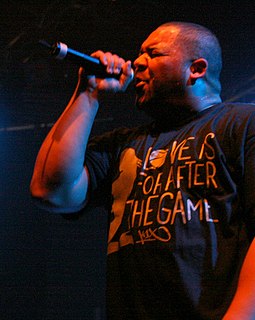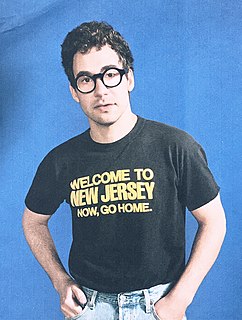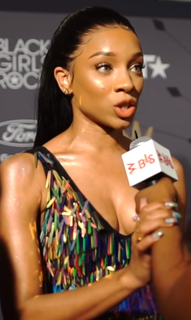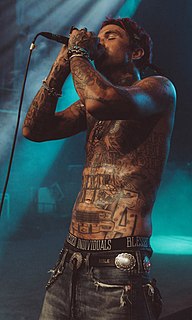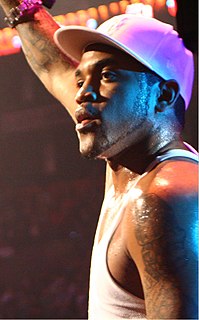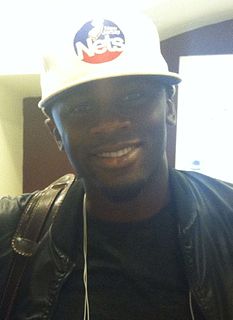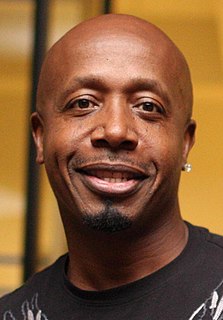Top 1200 Hip Hop Artist Quotes & Sayings
Explore popular Hip Hop Artist quotes.
Last updated on April 14, 2025.
Socially, hip-hop has done more for racial camaraderie in this country than any one thing. 'Cause guys like me, my kids - everyone under 45 either grew up loving hip-hop or hating hip-hop, but everyone under 45 grew up very aware of hip-hop. So when you're a white kid and you're listening to this music and you're being exposed to it every day on MTV, black people become less frightening. This is just a reality. What hip-hop has done bringing people together is enormous.
Quentin Tarantino is a hip-hop artist. I told him, 'You're hip-hop!' You keep seeing surprises, and a clip here and there, because Quentin is hip-hop. A hip-hop artist will drop a single, leak something over here, and drop something over there 'cause he knows it's hot. He's on the spot with the way he does things.
In this time, we incorporate money and media, and it's split up like apartheid, where when you say "hip-hop," you think just rap records. People might have forgot about all the other elements in hip-hop. Now we're back out there again, trying to get people back to the fifth element, the knowledge. To know to respect the whole culture, especially to you radio stations that claim to be hip-hop and you're not, because if you was a hip-hop radio station, why do you just play one aspect of hip-hop and rap, which is gangsta rap?
When I say hip-hoppers, I mean black, white, Asian, Latino, Chicano, everybody. Everybody. Hip-hop has united all races. Hip-hop has formed a platform for all people, religions, and occupations to meet on something. We all have a platform to meet on now, due to hip-hop. That, to me, is beyond music. That is just a brilliant, brilliant thing.
After many years of hip-hop as a nation we should have the sophistication to accept that their are distinctions between the corporate manifestation of hip-hop, sold as a commodity and package with sensational race, sex and violent imagery, and the hip-hop culture that kids are living everyday at a local level, which often doesn't dabble in that terrain.
To me, that's the biggest problem with hip-hop today is the fact that everyone believes that all of hip-hop is rap music, and that, when you say "hip-hop," it's synonymous with rap. That when you say "hip-hop," you should be thinking about breakdancing, graffiti art, or MCing - which is the proper name for rap - DJing, beat-boxing, language, fashion, knowledge, trade. You should be thinking about a culture when you say, "hip-hop.".
Legions of young hip-hop fans are as against this as hip-hop's most fierce critics. There is a huge underground movement within hip-hop circles that against these representation. You can hear this message on tons of lyrics and rap songs produced by independent emcees. But they are fighting against a well-oiled and well-financed machine.
Somewhere down the line, the evil ones stole the legacy of hip hop and flipped it to a corporate type of hip hop. They decided to tell everybody 'Well, this is what hip hop is,' instead of coming back to the pioneers and getting the true definition of what hip hop is and what it was and what we been pushing for all these years.
Quentin Tarantino is a hip-hop artist. I told him, "You're hip-hop!" You keep seeing surprises, and a clip here and there, because Quentin is hip-hop. A hip-hop artist will drop a single, leak something over here, and drop something over there 'cause he knows it's hot. He's on the spot with the way he does things.
My definition of hip hop is taking elements from many other spheres of music to make hip hop. Whether it be breakbeat, whether it be the groove and grunt of James Brown or the pickle-pop sounds of Kraftwerk or Yellow Magic Orchestra, hip hop is also part of what they call hip-house now, or trip hop, or even parts of drum n' bass.
A lot of the commercial expression of hip-hop leaves a lot to be desired - but then, there's a lot of whack gospel music, but I'm not leading a crusade against it. Of course, the vices of hip-hop are far more influential, I understand. But the good that hip-hop transmits, the power of the culture to rally the best of our protest, and uplift, and resistance, traditions, is often unfairly overlooked.
I'm born and raised in Dusseldorf, and my parents emigrated to Germany sometime in the '70s, so I grew up completely different from any other German. I found my love in hip-hop music. Hip-hop was delivering everything that I needed: the message, the lifestyle - everything. I fell in love with it and I'm still hip-hop.
I see that happening with hip hop purists now. Where you have an artist like a Kendrick [Lamar] or a Drake, who are really trying different things emotionally, different things musically, and on a mainstream level. And you have underground hip hop fans dissing it, for the simple fact that it's mainstream - not because what they're doing is whack, or what they're doing is not sincere.
For instance, one big issue in hip hop is the gay thing. It's 2013, and it's a shame that, to this day, that topic still gets people all excited. It's crazy. And it makes me upset that this topic even matters when it comes to hip hop, because it makes it seem like everybody in hip hop is small-minded or stupid - and that's not the case.
What sets 'Some Nights' apart from anything we've ever done is the hip-hop influence. Not so much the actual sound of hip-hop, but more the vibrato and the artistry that comes with it. Right now, the artists that seem to be pushing to be the greatest artists and are trying to change the world are hip-hop artists.
There needs to be structures in place to do something about misrepresentation about hip hop. When awards are given out and the media talk about hip hop, they're confused because they haven't done their homework on it so you have a case where there's an award for the most pop song in the world and it's called 'hip hop'.
Well, we have to realize the truth about the person who is a hip-hop insider. Most of these people are not really insiders. They are people who are chosen to do an interview and they will make a statement and say that they are a part of the hip-hop culture, but from an intellectual standpoint, they are not very sharp, because back in '1990..'91 one would criticize somebody for doing one type of commercial and say that's not real hip-hop and then another rapper turns around and sell them malt liquor and say that's real hip hop.






